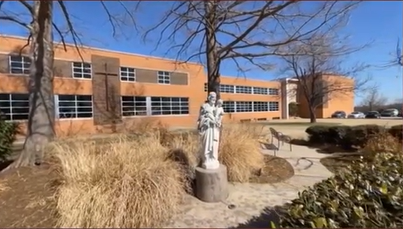Private Schools
Delve into the world of private schools and their role in providing unique educational opportunities. Discover how they fit into the broader educational ecosystem.

Upsides and downsides of a SCOTUS victory for nation’s first religious charter school
The story: With less than a week to go before the U.S. Supreme Court hears arguments about the constitutionality of religious charter schools, supporters and opponents are making wildly different predictions about the possible effects. Supporters, who include advocates for religious education, are framing a win for their side as... READ MORETaking advantage of her opportunities, Zori reaches Step 1 of her life plan – an Ivy League scholarship
FORT LAUDERDALE, Fla. – Zori Brown was in the sixth grade when she made a plan for her future that was concise and to the point: Attend an Ivy League...
READ MORE‘The kind of student you dream about’ flourishes with the help of an education choice scholarship
WINTER PARK, Fla. – The piano stood silent in the corner of the empty gymnasium until Riccardo Cerutti sat on the bench, lifted the key lid, and played the opening...
READ MORETiovanni’s road to being ‘magnificent’ starts with an education choice scholarship
Tiovanni Johnson squirms in his chair and lowers his head. His grandmother is telling a story about his kindness toward strangers, and he wishes she would stop. In fact, he...
READ MOREThe nature school that’s growing environmental leaders
SARASOTA, Fla. – When Briana Santoro and her family moved to Florida in 2021, she set out to find the perfect school for her two young sons. She wanted a...
READ MOREEd Choice scholarships are a boon to the expansion of Key West’s Catholic school
Editor’s Note: This story originally ran on Florida Politics. The dream, the goal, the answer to many prayers is a three-story building that houses seven classrooms, a chemistry lab, a...
READ MORECatholic school enrollment rises again in Florida
Florida Catholic schools are thriving, and the latest enrollment numbers prove it. Across the state, enrollment rose from 90,870 in the 2023-24 school year to 93,455 – a 2.8%...
READ MOREPalmetto state parents fight to regain power to send their kids to private schools
Two South Carolina parents are fighting to reclaim the power to direct their children’s education after a state Supreme Court ruling ripped it away only weeks into the new school...
READ MOREAfter years of enrollment declines, new migration to the Tampa Bay area creates rising demand for Jewish schools
TAMPA, Fla. — With 16 dormer windows that peek out from all sides of the roof and a wrap-around porch, the building looks more like a place to relax than...
READ MOREEducation choice helps improve our civic culture
The evidence suggests that the choice critics are wrong. Education freedom does not contribute to unhealthy social discourse. When done well, it is part of the solution.
READ MORETop grades and desire to ease family’s financial burden leads to coveted QuestBridge scholarship
DORAL – When he begins his freshman year this fall at Boston University, Alvaro Saenz plans to major in biomedical engineering, a decision driven by his lifelong love of science and...
READ MORE

